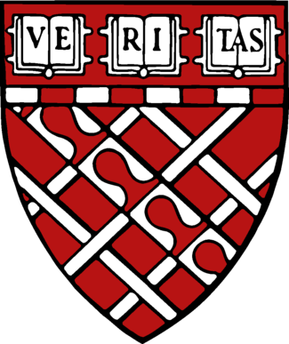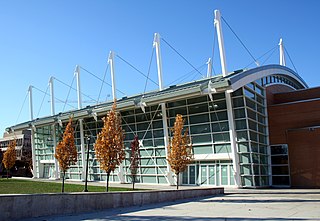
An architect is a person who plans, designs and oversees the construction of buildings. To practice architecture means to provide services in connection with the design of buildings and the space within the site surrounding the buildings that have human occupancy or use as their principal purpose. Etymologically, the term architect derives from the Latin architectus, which derives from the Greek, i.e., chief builder.

Landscape architecture is the design of outdoor areas, landmarks, and structures to achieve environmental, social-behavioural, or aesthetic outcomes. It involves the systematic design and general engineering of various structures for construction and human use, investigation of existing social, ecological, and soil conditions and processes in the landscape, and the design of other interventions that will produce desired outcomes.

A landscape architect is a person who is educated in the field of landscape architecture. The practice of landscape architecture includes: site analysis, site inventory, site planning, land planning, planting design, grading, storm water management, sustainable design, construction specification, and ensuring that all plans meet the current building codes and local and federal ordinances.

The American Institute of Architects (AIA) is a professional organization for architects in the United States. Its headquarters are located in Washington, D.C. The AIA offers education, government advocacy, community redevelopment, and public outreach programs, and collaborates with other stakeholders in the design and construction industries. The current leadership of the AIA includes Lakisha Ann Woods, CAE, serving as EVP/Chief Executive Officer, and Emily Grandstaff-Rice, FAIA, serving as the 2023 AIA President.
Building design, also called architectural design, refers to the broadly based architectural, engineering and technical applications to the design of buildings. All building projects require the services of a building designer, typically a licensed architect. Smaller, less complicated projects often do not require a licensed professional, and the design of such projects is often undertaken by building designers, draftspersons, interior designers, or contractors. Larger, more complex building projects require the services of many professionals trained in specialist disciplines, usually coordinated by an architect.
Design–build, also known as alternative delivery, is a project delivery system used in the construction industry. It is a method to deliver a project in which the design and construction services are contracted by a single entity known as the design–builder or design–build contractor. It can be subdivided into architect-led design–build and contractor-led design–build.

The Harvard Graduate School of Design (GSD) is the graduate school of design at Harvard University, a private research university in Cambridge, Massachusetts. It offers master's and doctoral programs in architecture, landscape architecture, urban planning, urban design, real estate, design engineering, and design studies.
The architectural technologist, also known as a building technologist, provides technical building design services and is trained in architectural technology, building technical design and construction.

The Landscape Institute (LI) is a UK based professional body for the landscape profession. Its membership includes landscape architects, urban designers, landscape planners, landscape scientists and landscape managers. The LI also has a category for academic members.

Building information modeling (BIM) is a process involving the generation and management of digital representations of the physical and functional characteristics of places. BIM is supported by various tools, technologies and contracts. Building information models (BIMs) are computer files which can be extracted, exchanged or networked to support decision-making regarding a built asset. BIM software is used by individuals, businesses and government agencies who plan, design, construct, operate and maintain buildings and diverse physical infrastructures, such as water, refuse, electricity, gas, communication utilities, roads, railways, bridges, ports and tunnels.

Iuav University of Venice is a university in Venice, Italy. It was founded in 1926 as the Istituto Universitario di Architettura di Venezia as one of the first Architecture schools in Italy. The university currently offers several undergraduate, graduate and higher education courses in Architecture, Urban Planning, Fashion, Arts, and Design.
Interior design education is the teaching of skills and information needed to perform interior design work. Education in this field is offered in different parts of the world; however, the application requirements for acceptance vary among countries and schools. There are a number of different routes to attain qualifications in interior design. An interior design education will teach people how to draw and to plan out a space, and will cover the latest design software along with other important coursework that will prepare them for this field of work. Education includes consideration for the design brief, design processes from concept to scheme development and implementation, as well as exploring surrounding philosophies, trends, sector specialisms and professional skills required for practice.

Boston Architectural College is a private college in Boston. It is New England's largest private college of spatial design. The college's main building is at 320 Newbury Street in Boston's Back Bay neighborhood.
Building officials of developed countries are generally the jurisdictional administrator of building and construction codes, engineering calculation supervision, permits, facilities management, and accepted construction procedures.

A building engineer is recognised as being expert in the use of technology for the design, construction, assessment and maintenance of the built environment. Commercial Building Engineers are concerned with the planning, design, construction, operation, renovation, and maintenance of buildings, as well as with their impacts on the surrounding environment.

The MIT School of Architecture and Planning is one of the five schools of the Massachusetts Institute of Technology, located in Cambridge, Massachusetts. Founded in 1865 by William Robert Ware, the school offered the first formal architectural curriculum in the United States and the first architecture program in the world operating within the establishment of a university. MIT SAP is considered a global academic leader in the design field and one of the most accomplished schools in the world. MIT's department of architecture has consistently ranked among the top architecture/built environment schools in the world and from 2015 to 2018 was ranked highest in the world in QS World University Rankings. In 2019, it was ranked second to The Bartlett but regained the number one position later on in the 2020 rankings.
A specification often refers to a set of documented requirements to be satisfied by a material, design, product, or service. A specification is often a type of technical standard.

Architectural engineering or architecture engineering, also known as building engineering, is a discipline that deals with the engineering and construction of buildings, such as structural, mechanical, electrical, lighting, environmental, climate control, telecommunications, security, and other areas. It is related to both architecture and civil engineering, and distinguished from architectural design, as an art and science of designing buildings.

The Australian Institute of Building (AIB) is a professional society founded in 1951, incorporated in 1955 and granted a royal charter in 1969. The institute is an association of building professionals, associate professionals and technicians engaged in building practice, teaching, or research throughout Australia and overseas. It has chapter offices in Hong Kong and Singapore and had a chapter office in New Zealand until the formation of the New Zealand Institute of Building in 1984.
Professional requirements for architects vary from place to place, but usually consist of three elements: a university degree or advanced education, a period of internship or training in an office, and examination for registration with a jurisdiction.













